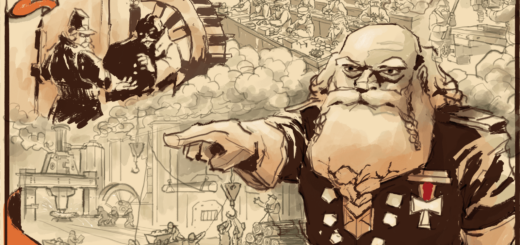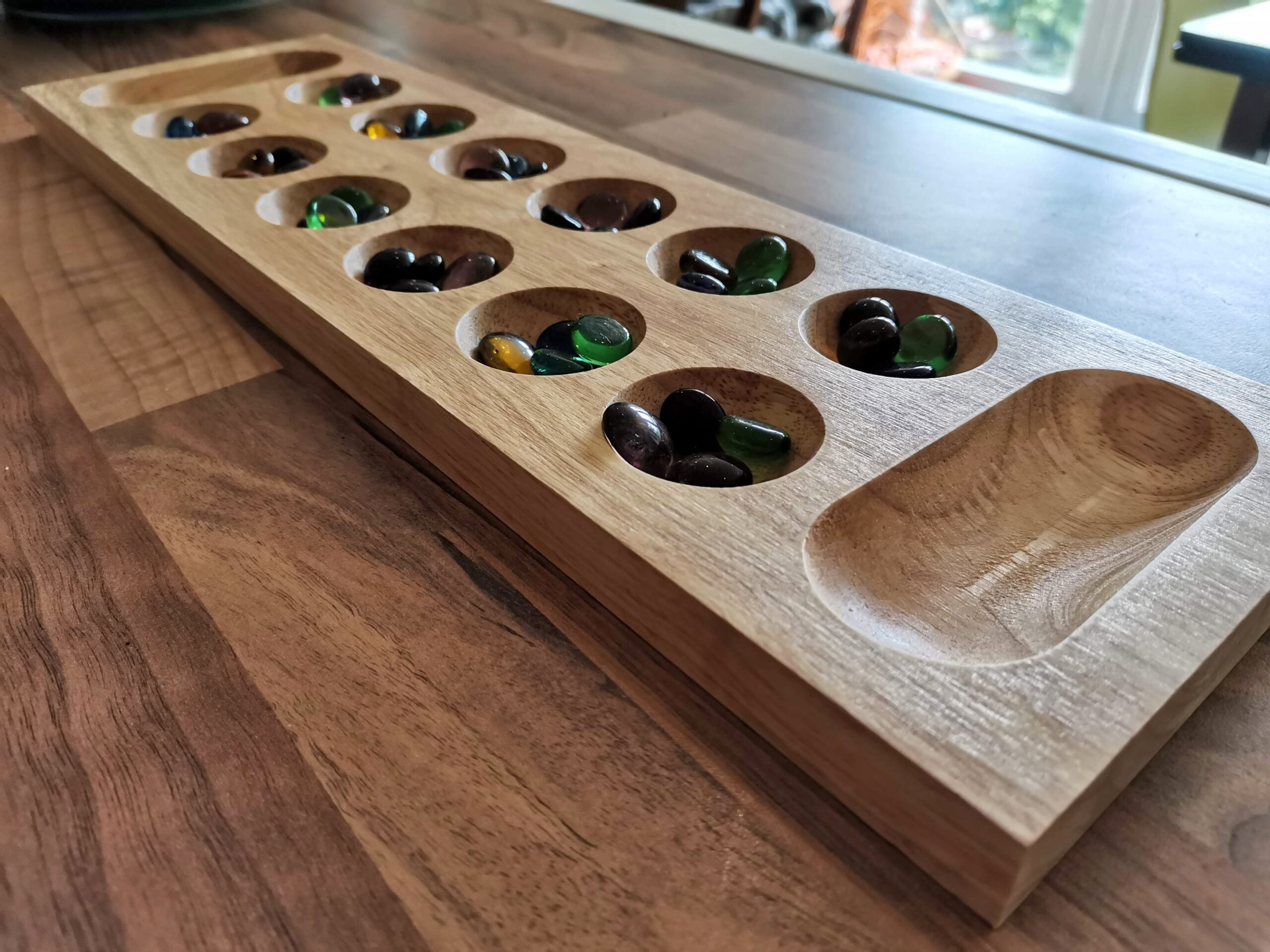Courtisans Review

A review copy was kindly provided by Hachette Boardgames UK. Thoughts & opinions are my own.
In Courtisans you play the role of an attendee at the Queen’s banquet. What’s on the menu? Hors d’oeuvres of influence & backstabbing, followed by a main course of skullduggery and shenanigans. Come, gorge yourself on the feast of fun this small box brings to your table too.
At its core, Courtisans is a very simple game. In the middle of the table is the cloth ‘board, which represents the Queen’s table. It’s separated into seven sections: one per noble family, and a middle section where spies go – more on this later. For every one of your turns you’ll find yourself holding three cards – each in a different suit, and all you have to do is play all three. One goes to the area in front of you, one goes to another player’s area (your choice), and the final one goes to the Queen’s table.
The last of these is the most interesting. If you play the card above the Queen’s table next to a particular family (each family has a colour/icon), you’re essentially voting to make that family esteemed. Play it below the table, and you’re trying to drag them down to be fallen from grace. At the end of the game, a family with more cards above than below is esteemed, more below than above is fallen from grace, and a tie means they’re neither. They’re the Switzerland of Courtisans – neutral.
Role-playing
If that all sounds interesting but bland, you’re right. Things would very quickly get deadlocked. Luckily there are lots of cards which have different roles in the game to spice things up. Nobles are worth two cards each, which can be huge. Assassins let you kill a card in the area in which you play it, regardless of whether it’s yours, the Queen’s table, or another player’s area, upsetting the balance of power. Guards, however, cannot be killed. Once they’re in place, they never move. Finally, you have the most interesting of the lot – Spies.
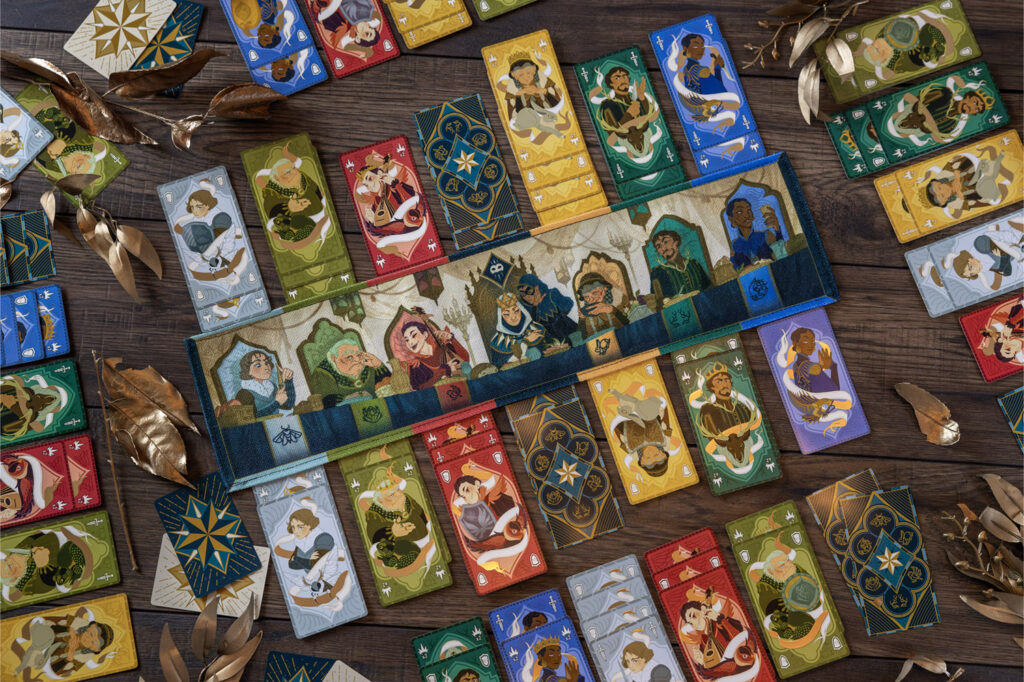
Spies are placed face-down, regardless of where you play it. If you play it to the Queen’s table, you play it to the centre, which isn’t assigned to any particular family. It’s played either above or below, so you know it’ll pull or push a family’s credibility, but you don’t know which family until the end of the game when the cards get revealed.
Scoring at the end of the game is easy. You count the cards around the Queen’s table and see which families are esteemed and which have fallen from grace. For every card you have matching the suits of esteemed families you gain a point, and for every fallen from grace family you lose a point. There’s one final twist of the knife where each player has two secret objectives, each of which is worth 3 VPs. What’s great about these are that they require players to do things like make sure certain families have fallen from grace, or to have more of a particular family than a neighbour, etc.
Quite a looker
The most obvious thing that sets Courtisans apart from many of its small-box peers is the quality of the production. The cards are long, tarot-size cards with beautiful inlaid gold on every one of them. The cardstock is thick and nice to handle (although those long cards are always awkward to shuffle). The little cloth board is a really cute touch, as it so easily could have been a plain old cardboard board instead. Yes, it’s a bit annoying that it never lies flat straight out of the box, but it’s so cute there on the table.
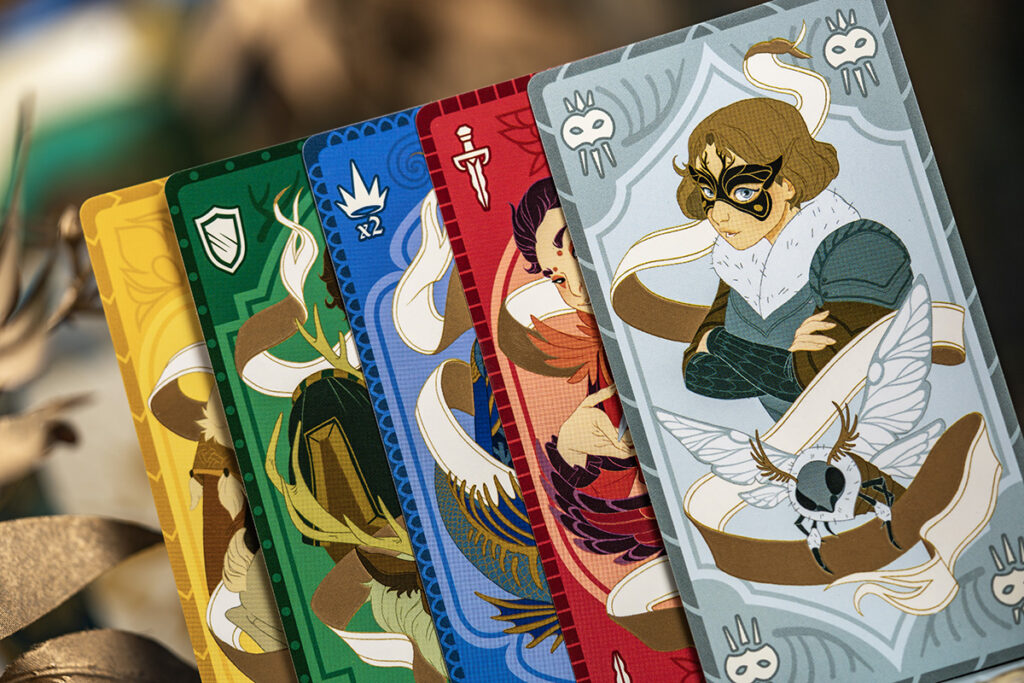
One of the best things about the game is its small footprint. Even though each player has their own tableau in front of them, you can stack and splay cards of each suit, just so there’s enough visible so that everyone knows how many of each card each other player has. I’ve played this on small tables in bars, on a desk, on a table in the corner of a shop, and the fact that I can makes it perfect for what it is. An interactive, clever game that only takes 15 minutes to play. It makes it the perfect ‘between games’ or ‘waiting for the food to arrive’ game.
Final thoughts
What can I say that I haven’t already? Courtisans has been a hit with every person I’ve introduced it to, which is coming close to 20 people now. It’s so easy to explain, and despite your turn being so simple – play three cards to three places – it’s surprisingly tactical. I was a little worried at first that the Assassin cards would alienate some people, because some folk hate take-that in a game, but so far it’s been a non-issue. I think it’s because it feels less personal and less invasive than in other games. You can’t be certain you haven’t helped someone out by killing a card from in front of them.
The small box means you can take it pretty much anywhere. It tucks into the small gaps in my backpacks which means it’s a convention and games night mainstay for me now. It’s always there, just in case, and because it’s so fast and so enjoyable, it invariably gets played a lot. If there’s a gap for a quick, interactive game in your collection, I heartily recommend Couritsans. It’s great.
You can buy Courtisans from my retail partner, Kienda, right here. Remember to sign up at kienda.co.uk/punchboard for 5% off your first order of £60 or more.
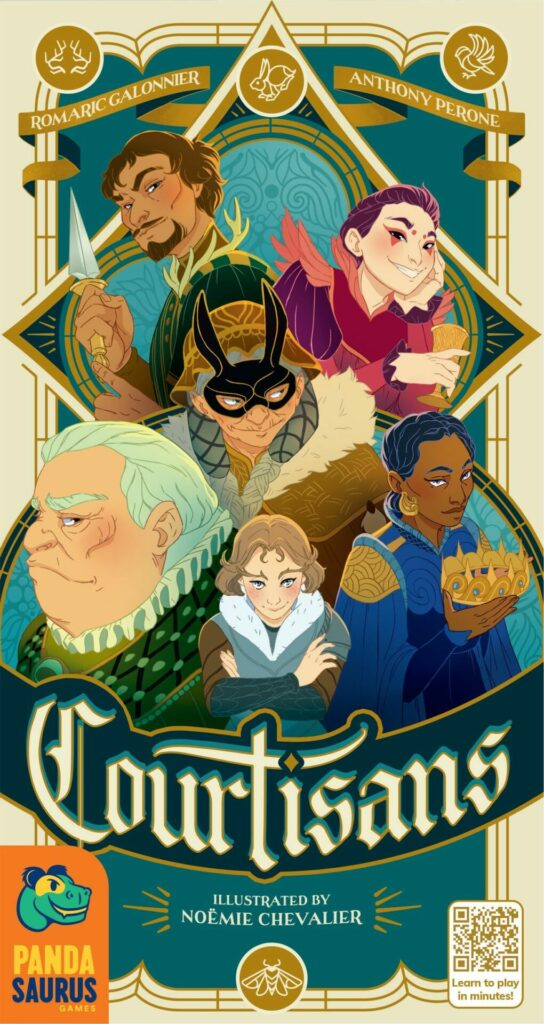
Courtisans (2024)
Design: Romaric Galonnier, Anthony Perone
Publisher: Catch Up Games
Art: Noëmie Chevalier
Players: 2-5
Playing time: 20-30 mins




